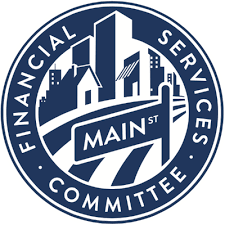 The House Financial Services Committee Task Force on Financial Technology held a hearing entitled: “Overseeing the Fintech Revolution: Domestic and International Perspectives on Fintech Regulation.”
The House Financial Services Committee Task Force on Financial Technology held a hearing entitled: “Overseeing the Fintech Revolution: Domestic and International Perspectives on Fintech Regulation.”
The witnesses were regulators from multiple continents including Valerie Szczepanik the Associate Director of the Division of Corporation Finance and Senior Advisor for Digital Assets and Innovation, at the Securities and Exchange Commission (SEC) and Christopher Woolard a Board Member and Director of Strategy and Competition, at the Financial Conduct Authority (FCA), in the United Kingdom.
Also on the panel were Beth Knickerbocker, the Chief Innovation Officer, Office of the Comptroller of the Currency (OCC) and Director, Department of Financial Institutions, State of Washington, on behalf of the Conference of State Bank Supervisors (CSBS).
Those two engaged in a debate over the viability of federal regulation for fintech companies which engage in banking activity.
The OCC charters, regulates and supervises all national banks. Once chartered, banks by pass all state regulators and have one set of federal regulations.
In the last couple years, a debate has started because OCC began accepting charter applications for certain fintech companies on a limited basis- at least for now– starting last July.
One notable example was Varo Bank: “Varo Money began as a fintech startup providing mobile banking products and online lending in partnership with banks. Varo did not, however, pursue an OCC fintech charter; instead, Varo sought a national bank charter, which affords it some advantages. Perhaps most significantly, Varo Bank, N.A. could accept deposits in addition to paying checks and making loans.” According to an article at the time.
Since OCC began accepting applications, state regulators have taken the matter to court.
According to an article in Consumer Finance Monitor, “The Conference of State Bank Supervisors (CSBS) has filed a second lawsuit in D.C. federal district court to stop the Office of the Comptroller of the Currency (OCC) from issuing special purpose national bank (SPNB) charters to fintech companies. A similar lawsuit was filed last month in a New York federal district court by the New York Department of Financial Services.
“The CSBS and the DFS had previously filed lawsuits challenging the OCC’s authority to grant SPNB charters to fintech companies at a time when the OCC had not yet decided whether it would move forward on its charter proposal. Both lawsuits were dismissed for failing to establish an injury in fact necessary for Article III standing and for lacking ripeness for judicial review. The new lawsuits were filed in response to the OCC’s July 2018 announcement that it would begin accepting applications for SPNB charters from fintech companies. In its complaint, the CSBS alleges that “things have changed substantially since the Court’s decision [dismissing the prior CSBS lawsuit]. The issuance of a [SPNB] charter is now clearly imminent.” It further alleges that “upon information and belief, multiple pre-qualified candidates have already decided to apply (and may have already applied).”
The debate continued during the hearing.

In her written statement, Knickerbocker noted, “The OCC recognizes that fintech companies can play an important role in responsible innovation in the federal banking system by becoming OCC-chartered institutions. Many fintech companies (such as marketplace lenders, personal finance companies, payment processors, asset managers, and custody service providers) offer products and services that have historically been offered by banks. Since the early stages of the OCC’s work to support responsible innovation, these companies have consistently asked the agency about options for becoming national banks.
“For a fintech company that engages in the business of banking and meets the rigorous standards to become a national bank, there are several paths available to apply for a national bank charter. First, a fintech company may apply for a full-service national bank charter if it seeks to engage in the full array of national bank activities, including accepting deposits. To date, two fintech companies have applied to the OCC to operate as full-service national banks.”
The debate really got going when Congressman Stephen Lynch, a Democrat from the State of Massachusetts, had his chance to ask questions for five minutes; each member of this task force had five minutes to ask questions.
Lynch first asked about press reports that technology companies like Google and other large technology companies had reached out to find out about this charter.
A June article in American Banker claimed that Google, Paypal, and others explored an OCC charter.
“Google, PayPal and dozens of other technology and fintech companies have visited with officials at the Office of the Comptroller of the Currency during the past year to explore whether to obtain the agency’s new special-purpose national bank charter, according to sources familiar with the matter.
“But both Google and PayPal, as well as several others, have since backed off over fears that they could harm existing relationships with state regulators and concerns about whether the OCC will prevail in a legal challenge to its authority to create the fintech charter.”
Knickerbocker denied knowing about any such meetings, “Not to my knowledge,” she responded.
She was also asked about Facebook’s plans to introduce a cryptocurrency called Libra.
“At least right now with Facebook Libra, there are no banks involved.” Knickerbocker stated.
About the larger merging of banking and technology, along with OCC’s role, she said, “We spend a lot of time with companies that are not used to the regulated environment to explain to them if they want to operate in the regulated environment what that means and we provide technical assistance to them and spend a lot of time discussing to expectations. To those companies who reach out to us for that special purpose charter, we have further discussions with them around liquidity, capital, risk management, governance and those expectations.”
When Clark got his chance, he said, “The state regulators oppose the special purpose charter because it lacks statutory authority. It’s up to this body, Congress, to decide whether the OCC should regulate these non-bank entities. I think the example you (Lynch) creates a perfect example of how such a charter would pick winners and losers. In a state system, currently a small company can enter the system, scale up, and be competitive with an innovative idea. With very large companies, which would essentially get a preference, that creates an unlevel playing field.”
The debate continues a philosophical debate as old as the nation; it was first started between Thomas Jefferson and Alexander Hamilton over the Bank of the United States- the first idea to nationalize the banking system.
Hamilton believed the world was interconnected and banking could only work with a unifying force; Jefferson was skeptical and fearful of central power and he believed the states were incubators of ideas.
The Industry Spread examined the Jefferson/Hamilton debate in more detail here.








